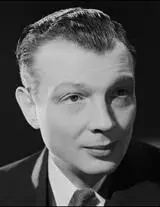Lester Hutchinson

Lester Hutchinson was born on 13th December 1904. His mother, Mary Knight, was a Labour Concillor in Manchester. He was educated at Bootham School and the University of Edinburgh. After leaving university Hutchinson worked as a journalist.
Hutchinson was a member of the League Against Imperialism and worked for the Indian Daily Mail. In India throughout 1928 and 1929 there was a strong wave of strikes, on the railroads, in ironworks and in the textile industry. Trade union numbers and organisation grew rapidly during this period.
The British Government initiated a Committee headed by Sir Charles Fawcett. The arrests of prominent trade unionists and socialists were part of the preparation for the issue of the report. This included Hutchinson, Philip Spratt, Ben Bradley, and 30 other trade unionists, were imprisoned by the Indian after the Meerut Conspiracy Trial in 1929.
A member of the Labour Party he was elected to represent Rusholme division of Manchester in the 1945 General Election. In the House of Commons Hutchinson associated with a group of left-wing members that included John Platts-Mills, Konni Zilliacus, Leslie Solley, Ian Mikardo, Barbara Castle, Sydney Silverman, Geoffrey Bing, Emrys Hughes, D. N. Pritt, William Warbey, William Gallacher and Phil Piratin.
In April 1948 John Platts-Mills organized a petition in support of Pietro Nenni and the Italian Socialist Party in its general election campaign. He gained support from 27 other MPs including Solley. This went against government policy and Platts-Mills was expelled from the party and Hutchinson was warned about his future conduct.
Ernest Bevin signed the North Atlantic Treaty in Washington on 4th April 1949. Solley completely opposed the treaty arguing that it went against the charter of the United Nations, would accelerate the arms race and make it more difficult to achieve a united Europe. On 12th May, 1949, Solley was only one of only six Labour MPs to vote against the signing of the NATO treaty. Four days later Hutchinson, along with Leslie Solley and Konni Zilliacus, were expelled from the Labour Party.
Hutchinson unsuccessfully contested Walthamstow East in the 1950 General Election as an Independent Labour candidate.
Lester Hutchinson died in February 1983
Primary Sources
(1) Romain Rolland, Meerut Trial (1932)
The Trade Union Congress is at this moment making a great stir about the coming celebration of the centenary of the martyred labourers of Dorchester who, in 1834, were transported for hsving cornmitted the crime of forming a Trade Union, and who are commemorated today as the founders of British Trade Unionism. Three generous Englishmen, Philip Spratt, B. F. Bradley, and Lester Hutchinson have associated themselves with the Indian workers in the spirit of brotherhood, and have been tried with them at Meerut. After four years imprisonment, during which one of the accused died, the Trade Unionists of Meerut have been sentenced to transportation under murderous conditions, one for life, t.he others for twelve years, ten years, seven years and five years. Their only crime is that of laying the foundations of an independent Trade Union organisation in India. The aim of British Imperialism is to nip in the bud every effort, every chance of the millions of Indian workers, who are struggling in an inferno, to band themselves together in their own defence. Will the world of labour allow this to be accomplished?
(2) Konni Zilliacus, speech in the House of Commons (4th March, 1946)
One third of Britain's budget is on defence. I suggest that the price is too high ... I think that we can render better service to peace by scaling down our armaments to the point where we are solvent and can get on with our Socialist reconstruction, rather than by lowering the standard of living of our people and staggering into national bankruptcy under the burden of huge armaments.
Since the general election there has been no sign of any realistic insight into what is happening in the world, no sober appraisal of our own position or the limitations of our power... We have sunk into ancient ruts, running back to the nineteenth century, and punctuated by two world wars. We are trying to make the ghost of Palmerston walk again.
(3) Konni Zilliacus, speech in the House of Commons (12th May, 1949)
The more we arm the more we increase fear and suspicion. The more we increase armaments, the less strong we feel ourselves and the more we feel the other fellow strength. In order to sustain the burden and sacrifice of the arms race one has to foment and sustain a psychological condition in the people who are bearing he strain, that unfits them for peacemaking ... So much for the Atlantic Pact: it scraps the Charter and returns to the balance of power. It commits us to a new arms race I beg the Government to find some way before it is too late to come back to the Charter of the United Nations ... to be conciliatory and moderate in their attitude, not to be rushed or stampeded into recrimination, not to put their faith in armaments, but in a wise and conciliatory policy.

